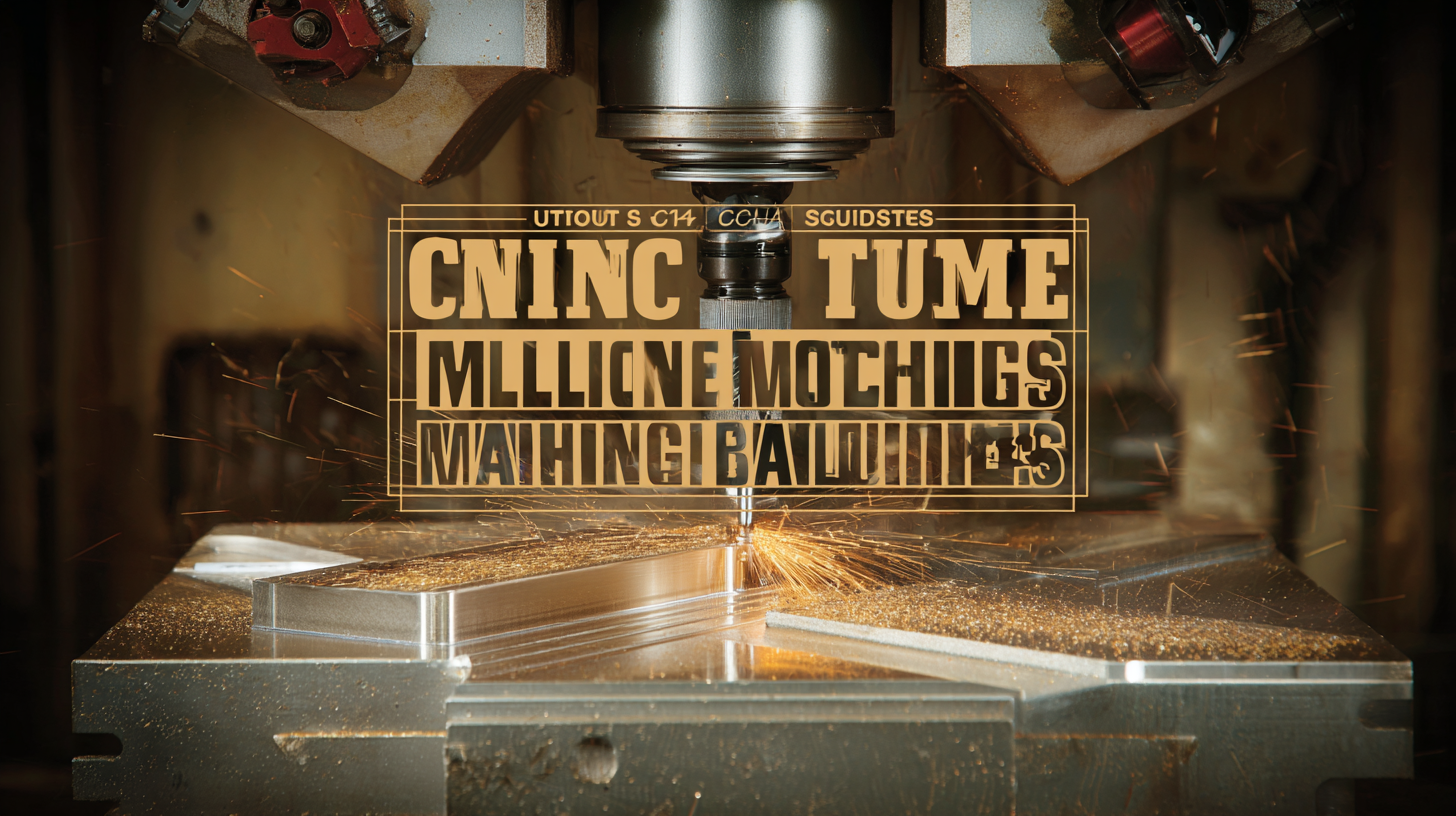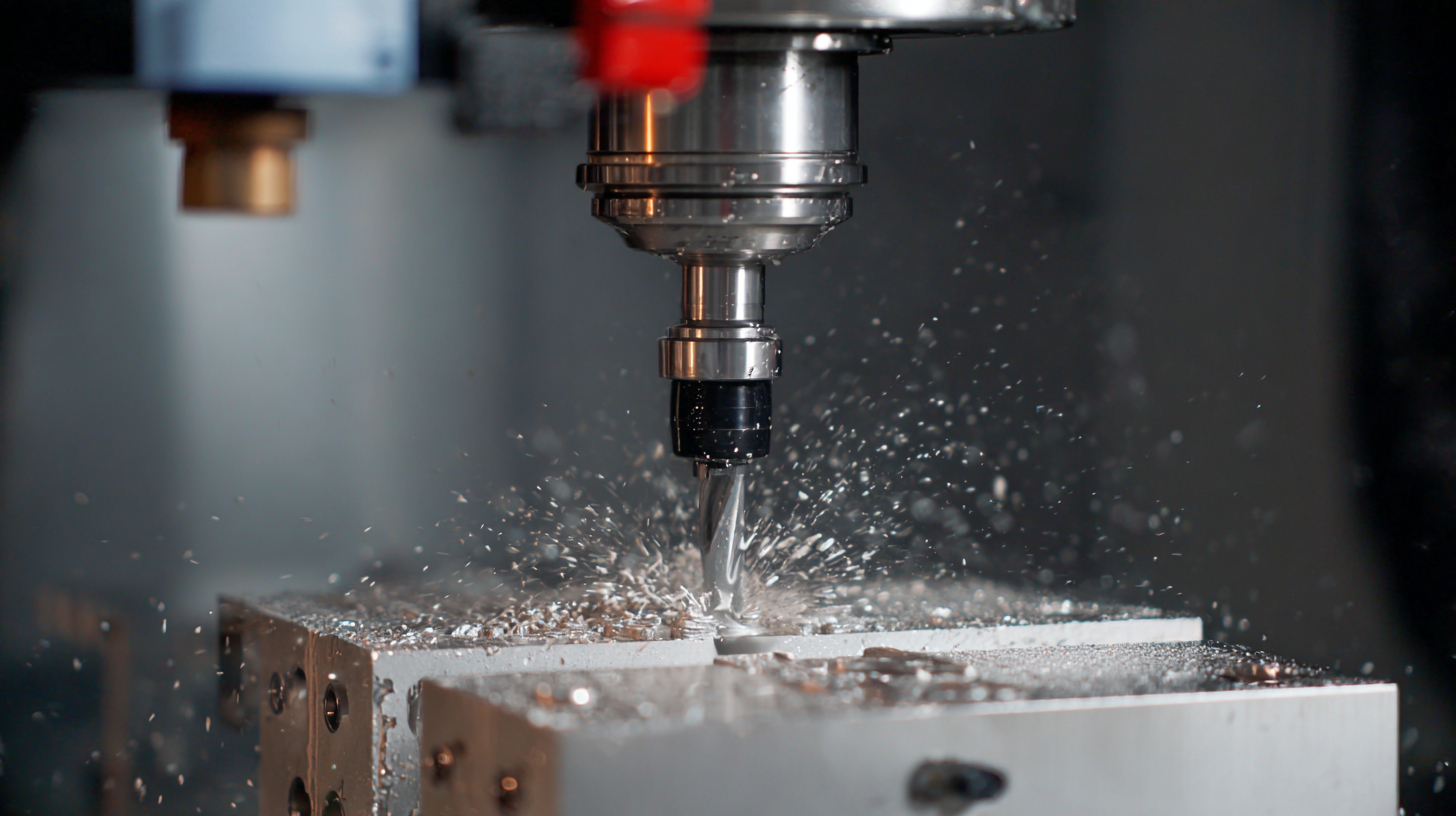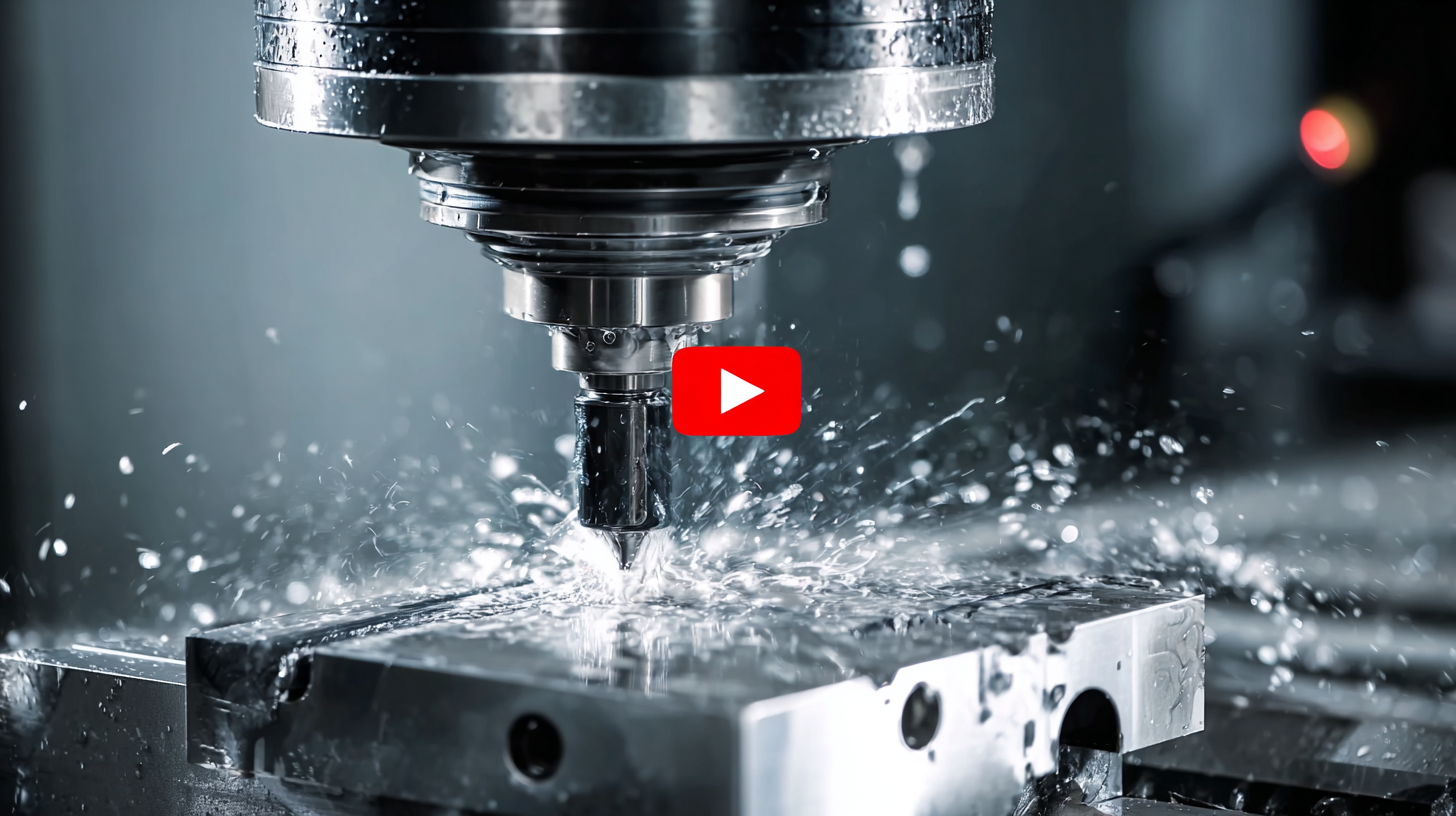Ultimate Guide to Choosing the Best CNC Milling Machines for Your Business
Choosing the right CNC milling machines for your business can be a daunting task, given the myriad of options available in today's market. As technology continues to advance, understanding industry production standards and the nuances of how to select the ideal machinery becomes crucial for maintaining a competitive edge. This ultimate guide delves into the critical factors that should influence your decision-making process, from assessing your specific production needs to evaluating the technical specifications and capabilities of various CNC milling machines. Whether you are a seasoned manufacturer or just starting out, this comprehensive resource will provide you with the insights needed to make an informed investment that aligns with your business goals. Embrace the journey of selecting the best CNC milling machines, and empower your operations with the tools necessary for success.

Understanding the Different Types of CNC Milling Machines Available Today
When it comes to selecting the ideal CNC milling machine for your business, understanding the different types available is crucial. CNC milling machines vary widely in their design and functionality, catering to a myriad of industrial needs. The most common types include vertical milling machines, which feature a vertically oriented spindle and are perfect for tasks requiring precision and ease of operation. These machines are ideal for creating complex components from various materials, making them a popular choice for small to medium-sized businesses.

Key Features to Look for in a High-Quality CNC Milling Machine
When selecting a high-quality CNC milling machine for your business, there are several key features to consider that can significantly impact performance and efficiency. One of the primary factors is the type of milling operation—wet or dry milling. Wet milling can provide better results for certain materials by reducing friction and preventing overheating, while dry milling is efficient for other applications, offering faster production rates. Understanding your specific needs will guide you towards the right choice.

Another important consideration is the axis configuration of the machine. A 5-axis CNC milling machine provides superior flexibility and precision compared to a 4-axis model. This increased capability allows for more complex and intricate designs, making them ideal for applications in various industries, including dental labs. As the dental milling machine market continues to evolve, keeping these considerations in mind will ensure that your investment leads to enhanced productivity and quality output in your operations.
Evaluating Your Business Needs: Choosing the Right CNC Milling Machine Size
When selecting a CNC milling machine for your business, it’s crucial to evaluate your specific needs, particularly the size of the machine. The dimensions of the milling machine should correspond to the types of projects you usually undertake. If you work with large components, a machine with a bigger workspace will enhance your production capabilities. Conversely, if your business primarily focuses on small, intricate parts, a compact and precise milling machine is the better choice.
**Tips:** Measure the average size of the materials you handle to determine the ideal machine size. Additionally, consider the available floor space in your facility; ensuring that the machine fits not only in terms of operation but also in installation and maintenance is essential.
Moreover, don't overlook the flexibility in machine size. Many businesses experience growth or shifts in production demands. Investing in a CNC milling machine that can accommodate various sizes or has adjustable features will be beneficial in the long run.
**Tips:** Research machines with modular features that can adapt to different projects. This adaptability might save costs and time as your business evolves.
The Role of Automation in Modern CNC Milling Machines
The role of automation in modern CNC milling machines has transformed the manufacturing landscape, providing businesses with unprecedented efficiency and precision. Automation allows for the seamless integration of computer-controlled systems that manage the milling process, significantly reducing the risk of human error. This technological advancement enables operators to focus on higher-level tasks, while the machines handle repetitive, intricate operations with consistent accuracy. As a result, manufacturers can achieve tighter tolerances and improved product quality, which is essential in today’s competitive market.
Moreover, automation in CNC milling machines enhances production speed and flexibility. With features such as pre-programmed tool paths and adaptive machining, these machines can quickly switch between different tasks, allowing companies to respond to changing demands without extensive downtime. This agility is particularly beneficial for businesses that operate in fast-paced environments where tailoring products to customer specifications is crucial. As industries continue to evolve, adopting automated CNC milling machines will not only optimize production processes but also drive innovation, positioning businesses at the forefront of their respective markets.
Ultimate Guide to Choosing the Best CNC Milling Machines for Your Business - The Role of Automation in Modern CNC Milling Machines
| Feature | Description | Automation Level | Price Range (USD) |
|---|---|---|---|
| 3-Axis CNC Milling Machine | Suitable for simple milling jobs, common in small workshops. | Low | $5,000 - $15,000 |
| 4-Axis CNC Milling Machine | Allows for more complex parts, adding rotation on one axis. | Medium | $15,000 - $30,000 |
| 5-Axis CNC Milling Machine | Can create intricate shapes and angles, ideal for aerospace and medical industries. | High | $30,000 - $100,000+ |
| CNC Lathe Machine | Used for producing cylindrical parts like shafts and bolts. | Medium to High | $10,000 - $80,000 |
| Desktop CNC Mill | Compact machines for hobbyists and small businesses. | Low | $1,000 - $5,000 |
Exploring Top Chinese CNC Milling Machine Manufacturers and Their Innovations
When it comes to choosing CNC milling machines for your business, narrowing down the options among top manufacturers is crucial. Chinese CNC milling machine manufacturers are gaining traction due to their innovative designs and competitive pricing. Companies such as HAAS, DMG Mori, and Jier provide advanced technology, including multi-axis capabilities and automated systems that increase productivity and precision. Understanding these innovations will help you make an informed decision that aligns with your operational needs.
Tips: Look for manufacturers that offer customizable features. This flexibility allows you to tailor the machine to suit your specific projects, enhancing efficiency and reducing waste. Additionally, consider customer support and warranty options; strong after-sales service is vital to keep operations running smoothly.
Investing in a CNC milling machine is significant, so researching the latest innovations in the industry can greatly benefit your business. Many Chinese manufacturers are focusing on eco-friendly technologies, which can reduce energy costs and lower your environmental impact while providing high-quality production capabilities. Pay attention to the innovations being unveiled at trade shows and conventions, as these can provide insights into the future direction of CNC technology.
